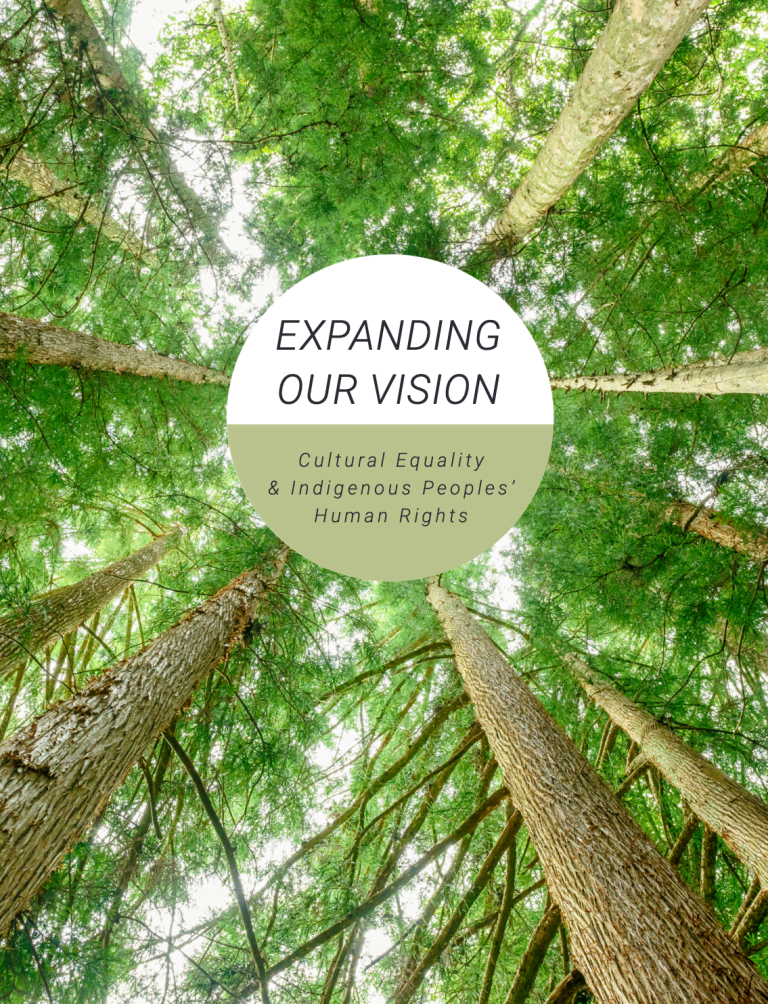25 search results
for
Access to justice
Guiding recommendations
Recommendation 5: Identify and remove procedural barriers within the BCHRT.-
Category and theme:
Audience:
Groups affected:
Location of recommendation:
Guiding recommendations
Recommendation 6: Increase the training for and number of lawyers available to support Indigenous Peoples in bringing human rights complaints, with an emphasis on Indigenous lawyers.-
Category and theme:
Audience:
Groups affected:
Location of recommendation:
Immediate procedural steps
Recommendation 7: Consider these recommendations remedial measures, and implement active and concerted efforts to address the underrepresentation of Indigenous complainants accessing the BCHRT. Create an affirmative access program for Indigenous Peoples.-
Category and theme:
Audience:
Groups affected:
Location of recommendation:
Immediate procedural steps
Recommendation 8: Create a staff/tribunal committee tasked with developing the Expanding Our Vision Implementation Plan. Indigenous lawyers and cultural leaders or academics with knowledge of human rights should be recruited to join these efforts. The Expanding Our Vision Implementation Plan should include immediate steps to be taken in the first 6 months, and then be renewed on a yearly basis.-
Category and theme:
Groups affected:
Location of recommendation:
Incorporate Indigenous laws
Recommendation 10: The BCHRT should actively engage with Indigenous Peoples, working with the Office of the Human Rights Commissioner, Indigenous lawyers, and law schools, to incorporate Indigenous laws into a renewed human rights process which reflects Indigenous approaches for protecting human rights.-
Category and theme:
Audience:
Groups affected:
Location of recommendation:
Incorporate Indigenous laws
Recommendation 11: The BCHRT, working in concert with the Canadian Human Rights Tribunal, could approach other human rights agencies to institute an Indigenous ombuds office across jurisdictions, per the recommendation of the MMIWG2S Inquiry.-
Category and theme:
- Access to justice ,
- Decolonization and Indigenous rights ,
- Health, wellness and services ,
- Human rights system ,
- Indigenous issues in policing and justice ,
- Missing and murdered Indigenous women, girls, Two-Spirit, and LGBTQ2SIA+ people ,
- Policing and the criminal justice system ,
- Poverty and economic inequality ,
- Public services
Audience:
Groups affected:
Location of recommendation:
Increase Indigenous involvement within the BCHRT
Recommendation 16: Offer human rights clinics in remote regions (going back regularly) to both teach about human rights and to assist with filing claims. Approach law schools for options to work jointly in providing these clinics regionally and to create regional expertise.-
Category and theme:
Audience:
Groups affected:
Location of recommendation:
Coordinating human rights responses across jurisdictions
Recommendation 21: The BCHRT should discuss with the Canadian Human Rights Commission (CHRC) a coordinated process for sorting jurisdictions between the federal and provincial bodies when Indigenous Peoples bring a human rights complaint. An agreement to triage claims between the CHRC and BCHRT would assist Indigenous complainants.-
Category and theme:
Audience:
Groups affected:
Location of recommendation:
Addressing systemic racism
Recommendation 22: Develop a baseline of information and understanding of the racism that Indigenous Peoples experience so that individual complainants are not put to a process of proof again and again. Advance research or statements about common areas of discrimination experienced by Indigenous Peoples. This would operate similar to judicial notice of facts that are beyond dispute, as encouraged by the Supreme Court of Canada in cases such as Williams, Gladue, and Ipeelee.-
Category and theme:
Audience:
Groups affected:
Location of recommendation:
Addressing systemic racism
Recommendation 24: Empower the ability for Indigenous organizations to file collectively, to advance claims on behalf of individuals, similar in context to a “human rights class action.”-
Category and theme:
Audience:
Groups affected:
Location of recommendation:
